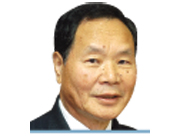Romney on North Korea
 Despite U.S. concerns of proliferation and security threats, North Korea is not a critical issue that will affect the outcome of the American presidential election in November. The North is not likely to provoke military trouble serious enough to make a difference during the rest of this presidential election year for either the United States or South Korea.
Despite U.S. concerns of proliferation and security threats, North Korea is not a critical issue that will affect the outcome of the American presidential election in November. The North is not likely to provoke military trouble serious enough to make a difference during the rest of this presidential election year for either the United States or South Korea.
Since Pyongyang’s failed satellite rocket launch in April that effectively cancelled a Feb. 29 agreement with Washington, the North has shown willingness to forego a third nuclear test and to reengage the United States. From its strategic calculation, the new North Korean leadership under Kim Jong-un seems to have decided to avoid further provocations.
However, it is also unlikely that there would be a breakthrough to the deadlock in inter-Korean relations or a new development that could help remove distrust and hostility between the United States and the DPRK, which has reached the worst level in the 60-year cycle of confrontation and engagement.
The Barack Obama administration knows that there is no satisfactory settlement of the North Korean issue achievable before the election. To protect his reelection chances, Obama would hope that the North does not stir up more trouble. The North appears to be cooperative for its own interests.
The North Koreans likely favor the reelection of Obama over the presumptive Republican presidential nominee Mitt Romney, despite their disappointment and frustration with the minimal record of Obama’s North Korea policy.
From Romney’s statements on North Korea so far and in view of the known perspectives of his foreign policy team members, it is easy to understand why North Koreans would favor Obama. A Romney administration would resemble the hawkish George W. Bush administration preferring to rely on military force to resolve international disputes rather than diplomacy.
To appeal to voters, Romney speaks of “another American century,” “an American exception to stay as the sole superpower to lead,” and “a robust military presence in the Pacific.” He does not trust the sincerity of the North Koreans at the negotiating table. He does not talk about engagement or negotiation for non-proliferation but about implementation of verifiable inspections.
When Kim Jong-il died six months ago, Romney argued that the United States should push for regime change on the opportunity of the North Korean leader’s death, calling him “a tyrant who lived a life of luxury while the North Korean people starved,” and who developed dangerous weapons. To bring about regime change and to force North Korea to take a different path, Romney said, “America must show leadership.” In contrast, the Obama administration has called for stability and caution during Pyongyang’s transition.
On the launch of the North Korean rocket, Romney charged that Obama’s “efforts to appease the regime have emboldened Pyongyang.” He said Obama had “no effective response to North Korea’s weapons program and Obama supported “a food-aid deal,” ― a characterization of the Feb. 29 agreement ― “that proved to be as naive as it was short-lived.”
According to Romney’s official campaign website, he “will commit to eliminating North Korea’s nuclear weapons and its nuclear-weapons infrastructure. A key mistake in U.S. policy toward North Korea has been to grant it a series of carrots in return for only illusory cooperation. Each step the world has taken toward North Korea has been met with further provocations and the expansion of its nuclear program.”
“Romney will reverse that dynamic.” He will make it “unequivocally clear to Pyongyang that continued advancement of its nuclear program and any aggression will be punished instead of rewarded.” Romney will “institute harsher sanctions on North Korea, such as cracking down on financial institutions that service the North Korean regime.”
“He will also step up the Proliferation Security Initiative to constrain North Korean illicit exports by increasing the frequency of inspections of North Korean ships and discouraging foreign ports from permitting entry to North Korean ships.” His people believe “such measures would shut off routes by which the regime supplies its nuclear program.”
A Romney administration would clearly be tougher in rhetoric and attitude, but it does not offer new ideas that could disarm North Korea. Its policy represents a rehash of the hardline aspects of what the previous and present administrations have tried without much success. Romney has yet to offer more specifics on how he can accomplish denuclearization and secure peace and stability in Korea.
Romney says he “will work to persuade China to commit to North Korea’s disarmament,” and “assure China it will not be alone in dealing with the humanitarian and security issues that will arise should North Korea disintegrate …and when the North Korean regime collapses…under the weight of its own economic and political contradictions”
The underlying assumption for this approach is not original. Under Obama’s policy of strategic patience, Washington and Seoul had erroneously anticipated an imminent fall of the Pyongyang regime or its surrender to international pressure to accept the conditions of engagement as dictated by them. The North neither fell nor surrendered.
Like Obama, Romney “will also pursue robust military and counter-proliferation cooperation with our allies and others in the Pacific region.” Similarly, he will also invigorate relationships with South Korea, Japan, and others to increase a collective military presence and cooperation,” to deal with the rising power of China.
The North is unlikely to collapse in the next five years. And, since neither Obama nor Romney seems to have any fresh ideas that will resolve the issue, perhaps, a solution should come from the next government of the South or the new leadership of the North. What’s your take? <The Korea Times/Tong Kim>

























































